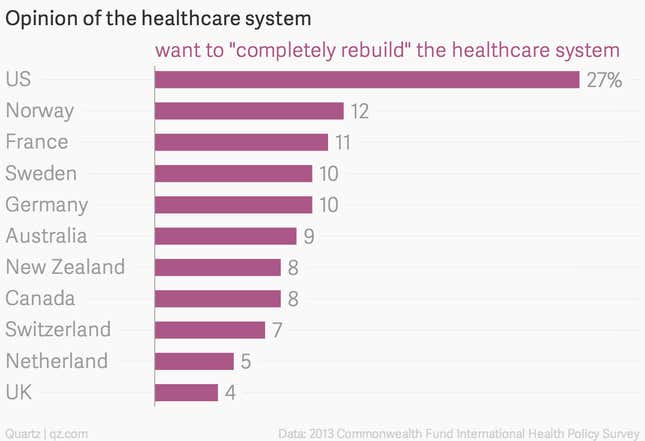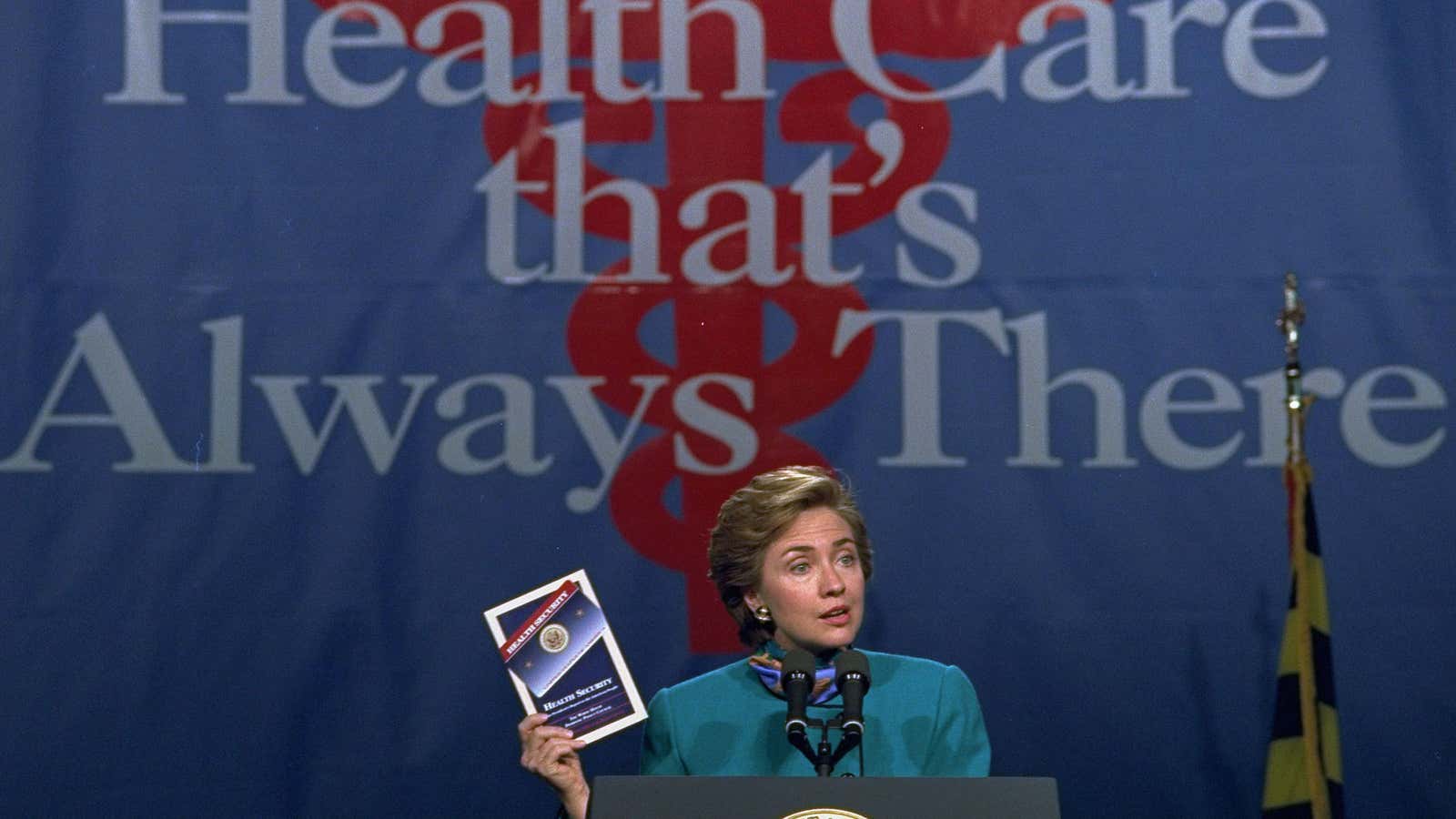Happy First Universal Health Coverage day everyone.
Two years ago today (on Dec. 12, 2012), the United Nations adopted a resolution to promote Universal Health Coverage. In the resolution, drafted by 55 countries (including the US), the General Assembly recognizes the responsibility of governments to “provide access to health services for all, amongst other elements, in particular for the poorest segments of the population.”
Or, put simply: everyone should have access to the health services he or she needs, without that being a financial burden—for the individual, or the country. Despite the fear that offering health care has a negative impact on a country’s finance, decades of studies have proven that universal healthcare ends up being economically more sustainable. This is why it’s the preferred choice of most countries who can afford it. (Norway first offered universal health coverage in 1912.)
Here is a map of the developed and developing countries that offer such access:
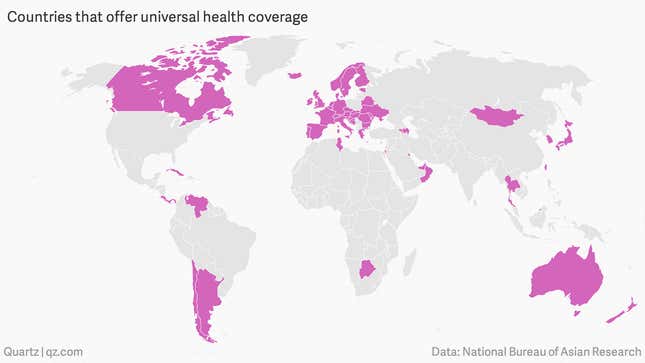
Most industrialized countries (as well as some countries that score lower on the development index) offer universal health coverage. Since 2010, 80 countries (including Brazil, Russia, China, India and South Africa) have asked the World Health Organization to help them provide universal coverage for their citizens, effectively moving toward a future where the largest part of the world population will enjoy government-guaranteed health coverage.
Below is a map of the industrialized countries that do not offer universal health coverage:
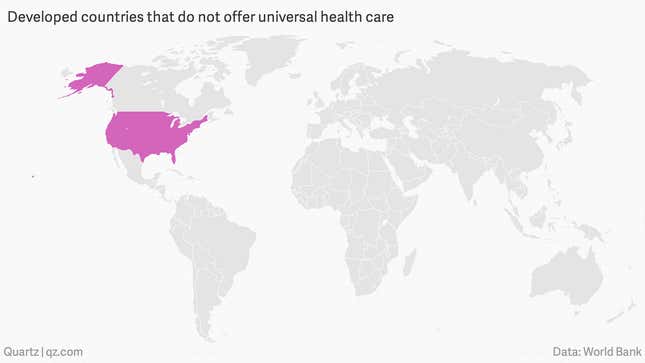
The US took significant steps toward universal health care in 2014 by implementing the Affordable Care Act, but the American health care system is still pretty far from offering what all other developed countries do.
If we take a look at data on US health care from 2011-2013, it’s apparent that a system of largely privatized health care does not make economic sense.
1. It increases health spending per capita
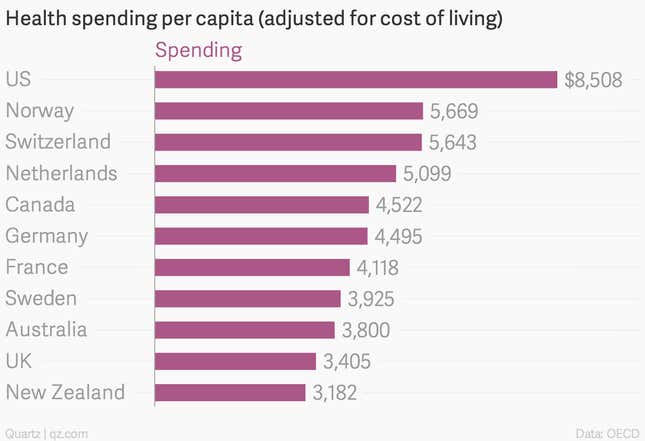
2. It limits people’s access to health care
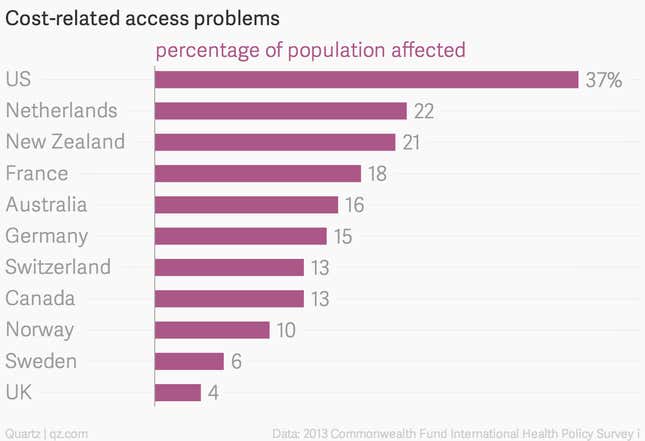
Out of the people who had problems paying their medical bills, 27% were insured, and 15% faced serious financial hardship covering costs despite being insured. Medical bills are the leading cause of personal bankruptcy in the US.
3. It increases the cost of health practices
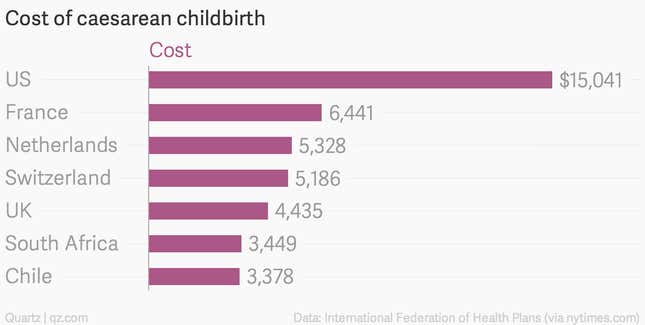
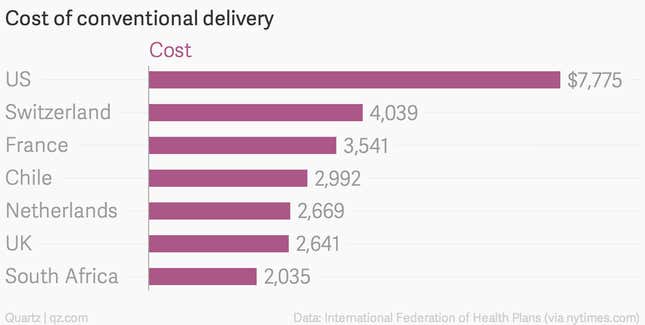
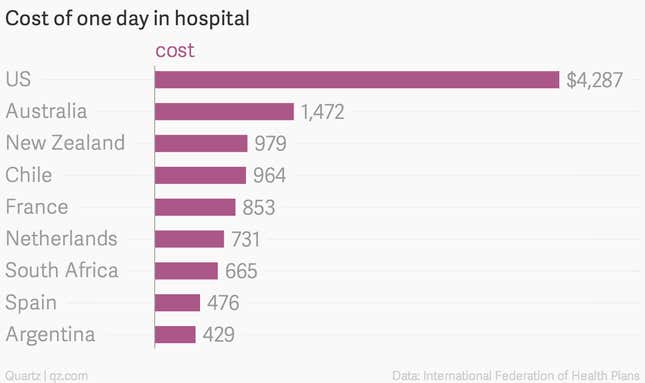
4. It does not make care more easily available
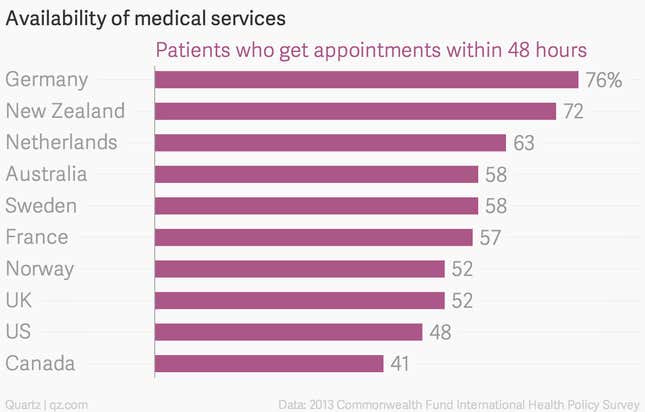
5. It is not efficient
According to a Bloomberg survey of 51 countries, the most efficient healthcare systems (and the healthiest population) are those with universal health coverage. The US ranks 44th.
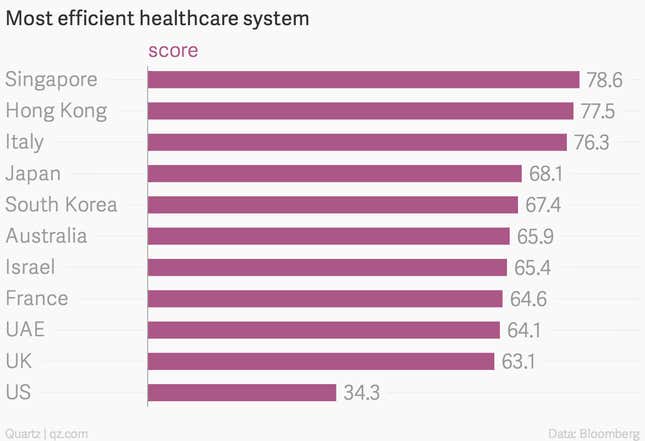
6. It does not satisfy people
